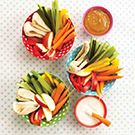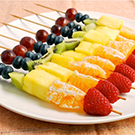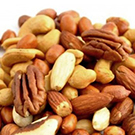To Snack, or not?
Active people are likely to eat more snacks but is this good or bad? Jennette Higgs investigates…
Eating little and often has long been encouraged, benefitting control of appetite, body weight and improved blood glucose control. However, frequent snackers could be eating too many calories, since high fat/sugar snacks are more abundant.
Constantly bombarding our teeth with (sugary) food and drinks is one reason for the current emphasis on sugar reduction, as dentists are concerned by the growing problem of tooth decay, especially in children. A survey of 300 UK elite athletes found that one third reported dental health problems that negatively impacted their performance. Likely causes include frequent high sugar and acidic energy drinks and carbohydrate snacks, together with a dry mouth/dehydration that reduces salivary flow- the body’s natural defence for the teeth.
Dentists recommend no more than 5 eating occasions a day. The key to protecting your teeth is to allow them to recover naturally from the inevitable acidic environment caused by bacteria in the mouth breaking down any sugars. Teeth remain vulnerable until our own saliva can neutralise the mouth once more, so ensure at least an hour before cleaning your teeth, or eating again; and always clean teeth before bed. Chewing sugar-free gum can also help stimulate saliva.
Dental and nutritional health drivers do not always align – fruit can be acidic, but the sugars in fruit are not part of the recommendations for sugar reduction, due to their nutritional benefits. Only 1/3 of adults and 8% of children meet the 5-A-DAY target; only 10% of us achieve the recommended 30g/day fibre; yet we’re averaging double the recommended intake of free sugars!
Snack or not, just eat more fruit and vegetables- at every eating occasion!
Recipe provided by Jennette Higgs, Registered Dietitian and Nutritionist. To find out more, visit Balanced Plate




